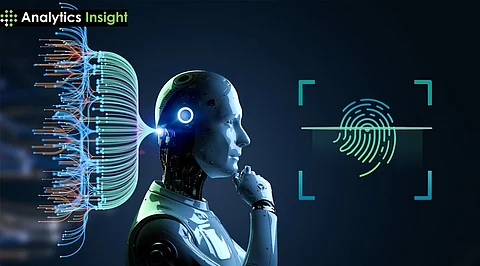

Artificial intelligence (AI) refers to the creation and management of systems capable of mimicking specific aspects of human intelligence. This area of computer science primarily focuses on developing algorithms and machine learning (ML) models that can autonomously analyze large datasets, extract insights, and make informed decisions.
Narrow AI (Weak AI): This is the most common form of AI today, designed to perform specific tasks. Examples include virtual assistants like Siri and Alexa, which excel in particular functions but cannot operate outside their programmed capabilities.
General AI (Strong AI): This theoretical form of AI would possess the ability to understand, learn, and apply knowledge across a wide range of tasks, similar to human intelligence. General AI does not currently exist but is a goal for many researchers.
Super AI: Also theoretical, super AI would surpass human intelligence in all aspects, including creativity, problem-solving, and emotional understanding. This level of AI remains speculative and is a subject of debate among experts.
Reactive Machines: These are the simplest forms of AI that operate solely based on current inputs without any memory of past experiences. An example is IBM's Deep Blue, which played chess by evaluating possible moves without learning from previous games.
Limited Memory AI: This type can use historical data to inform decisions but does not retain that information for future use. Most modern AI systems, such as self-driving cars and chatbots, fall into this category as they learn from past data to improve performance over time.
Theory of Mind AI: This is a theoretical concept where AI would understand human emotions, beliefs, and social interactions. While researchers are exploring this area, it has not yet been achieved in practice.
Self-Aware AI: The most advanced form of AI, self-aware systems would have consciousness and self-awareness comparable to humans. This concept remains purely hypothetical and is a topic of philosophical inquiry regarding the nature of consciousness.
Healthcare: AI is used for diagnosing diseases, predicting patient outcomes, and personalizing treatment plans. For example, AI algorithms can analyze medical images to detect conditions like cancer at an early stage
Finance: AI helps in fraud detection, risk management, and algorithmic trading. Financial institutions use AI to analyze large datasets for better decision-making and to automate customer service through chatbots.
Retail: AI enhances customer experiences through personalized recommendations, inventory management, and demand forecasting. Retailers use AI to optimize supply chains and improve sales strategies.
Manufacturing: AI-driven robots and automation systems improve production efficiency, quality control, and predictive maintenance. AI helps in monitoring equipment health and predicting failures before they occur.
Transportation: AI powers autonomous vehicles, traffic management systems, and route optimization. It improves safety and efficiency in logistics and public transportation.
Customer Service: AI chatbots and virtual assistants provide 24/7 customer support, handling inquiries, and resolving issues quickly. They use natural language processing to understand and respond to customer queries.
Marketing: AI analyzes consumer behavior to create targeted marketing campaigns, optimize ad placements, and improve customer engagement. It helps businesses understand customer preferences and trends.
Education: AI personalizes learning experiences, automates administrative tasks, and provides intelligent tutoring systems. It helps educators identify students' strengths and weaknesses for better support.
Automation: AI automates repetitive tasks, allowing humans to focus on more complex and creative activities. This increases productivity and efficiency across various industries.
Data Analysis: AI can process and analyze vast amounts of data quickly, providing insights that help in decision-making and strategy formulation. This capability is particularly valuable in fields like finance, healthcare, and marketing.
Enhanced Decision-Making: AI systems can make decisions based on data patterns and predictive analytics, often with greater accuracy than humans. This leads to better outcomes in areas such as medical diagnoses, financial forecasting, and supply chain management.
Personalization: AI enables personalized experiences in customer service, marketing, and entertainment by analyzing user behavior and preferences. This improves customer satisfaction and engagement.
24/7 Availability: AI-powered systems can operate continuously without fatigue, providing services and support around the clock. This is particularly beneficial in customer service and technical support.
Innovation: AI drives innovation by enabling new applications and solutions that were previously impossible. It fosters advancements in technology, such as autonomous vehicles, smart cities, and advanced robotics.
The term "artificial intelligence" was coined by John McCarthy in 1956 during the Dartmouth Conference, which is considered the birthplace of AI as a field.
AI is used in various applications such as virtual assistants (e.g., Siri, Alexa), recommendation systems (e.g., Netflix, Amazon), autonomous vehicles, and smart home devices.
While AI has many benefits, it also poses risks such as job displacement, privacy concerns, and the potential for misuse in areas like autonomous weapons. Ensuring ethical AI development and usage is crucial.
AI is expected to revolutionize industries by improving efficiency, creating new job opportunities, and driving innovation. It will play a significant role in healthcare, finance, transportation, and more.
AI helps solve complex problems, enhances productivity, and provides insights from large datasets that would be impossible for humans to analyze manually. It also improves decision-making and automates routine tasks.
